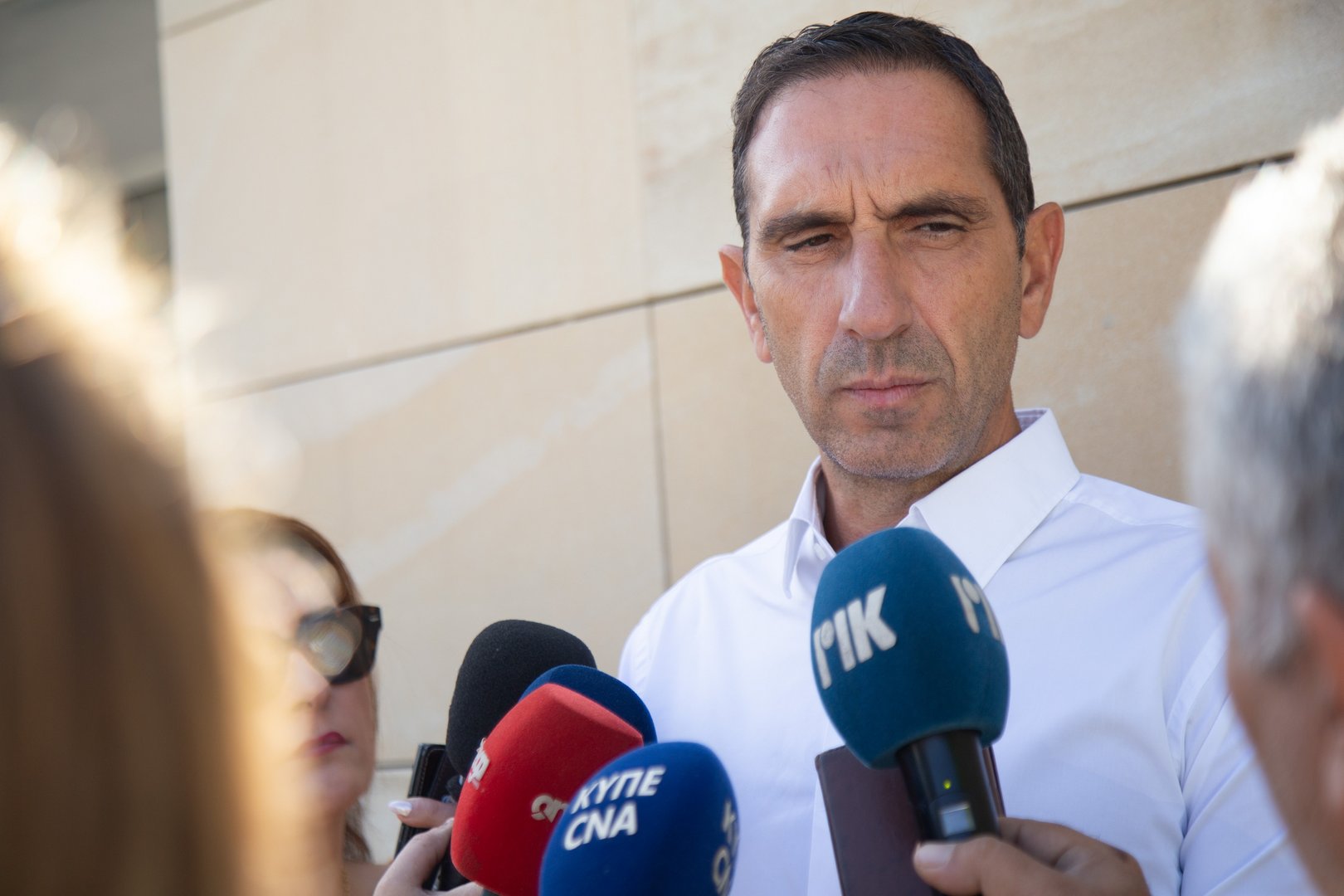The interior ministry on Monday presented the House finance committee with a budget more than 10 per cent higher than the year before, with its main focuses on housing policies, dealing with the migration issue and local government reform.
The €739 million budget for 2024 was presented by Interior Minister Constantinos Ioannou and is 11.5 per cent higher than the year before, meant to indicate the state’s interest in upgrades in the services offered to the public.
The main reforms and policies included in the budget are grouped into 11 areas, with priority on the establishment and operation of the deputy ministry of migration and asylum, the implementation of the local government reform, the implementation of housing policy programmes, the simplification of land development licensing procedures, the streamlining of Turkish Cypriot property management procedures and the strengthening of civil protection.
“The budget is balanced, it is progressive,” Ioannou said.
“It also has a strong social orientation.”
The proposed deputy ministry of migration and asylum has come up recently, with lawmakers saying that there were a number of problems associated with its creation.
In its presentation on Monday, the interior ministry said that regarding migration it is focusing on reducing the time required to examine asylum applications by more than doubling the number of examiners, resulting in a reduction in the time to complete the examination process to three months compared to the 21 months required previously.
The ministry also proposed extending the time migrants are not allowed to access the labour market to nine months.
As part of their plan the ministry also plans to increase returns.
By the end of October, the minister said voluntary returns reached approximately 6,000 persons compared to 4,900 in the corresponding period last year.
By October 2023, the total number of departures, including more than 1,500 relocations, was 9,300, compared to 5,800 departures in the corresponding period in 2022 (an increase of almost 60 per cent), the ministry said.
The ministry will also seek to promote an information campaign in sub-Saharan Africa (Congo and Nigeria) to dissuade people from coming to Cyprus.
As a result of a previous campaign, the number of new asylum applications in the period March-October 2023 decreased by approximately 50 per cent. In absolute numbers, in the above period, 7,700 new asylum applications were submitted compared to 15,200 applications in the same period of 2022.
The ministry reiterated to the committee on Monday that they are also promoting the idea of Syria being re-evaluated as a safe country for the EU.
In the context of international and European obligations, measures are being taken to strengthen the capabilities of the Republic in infrastructures for receiving and hosting migrants, the minister said.
He also rejected the previous government’s policy of erecting a fence along the Green Line to deter illegal migration from the north.
“There is no fence issue,” Ioannou said.
He reiterated that the measures implemented in recent months have given concrete data, with a halving of arrivals and an increase of more than 50 per cent in departures.
“So, for us, there’s no more barbed wire. The policies we follow are different. In consultation with Brussels to give warnings and actions to the Turkish Cypriot side, the information campaign in third countries brought a reduction from African countries. If there were not the arrivals of Syrians in the last two months from Lebanon, which were twice as many as in previous years due to the war in Israel, the results would have been much better,” he said.
Construction works on the new hospitality centre, with a capacity of approximately 1,000 people, and the pre-departure centre in the ‘Limnes’ area in Menoyia, with a capacity of approximately 800 people, have begun and are expected to be completed within 24 months. Also, at the beginning of 2024, the upgrade of the migrant reception centre in Pournara will be completed, at a total cost of €25 million.
According to what the committee heard, the ministry recently announced housing policies to revitalise the countryside, strengthen mountainous, hilly, remote and disadvantaged areas, financially support displaced people, and ensure access to affordable housing.
For the implementation of the housing policies, an expenditure of €43 million has been foreseen in the 2024 budget and an additional €84 million for the refugee housing policy.
Commenting on local government reform, the ministry told the committee that final steps will be taken, with the creation of the ‘Evagoras’ information system and the establishment of the district government organisations (EOA), which will take on some development licensing procedures.
To ensure a smooth transition for the licensing done by each district’s EOA, the recruitment process of 105 people has progressed, at a cost of approximately €4.5 million, the ministry said.
These officers will undertake the processing of pending applications, so that the new organisations can start their operation free from pending matters.
In addition, to strengthen this new effort, the state will contribute with additional financial assistance to the new municipalities. Specifically, for 2024 a total grant of €117 million will be granted, increased by approximately €46 million compared to 2023, as well as €18 million to the state-controlled communities and €4.7 million to the displaced municipal authorities.
The minister said that part of the budget will also focus on reforming and modernising the building authority, to attract more investment.







Click here to change your cookie preferences